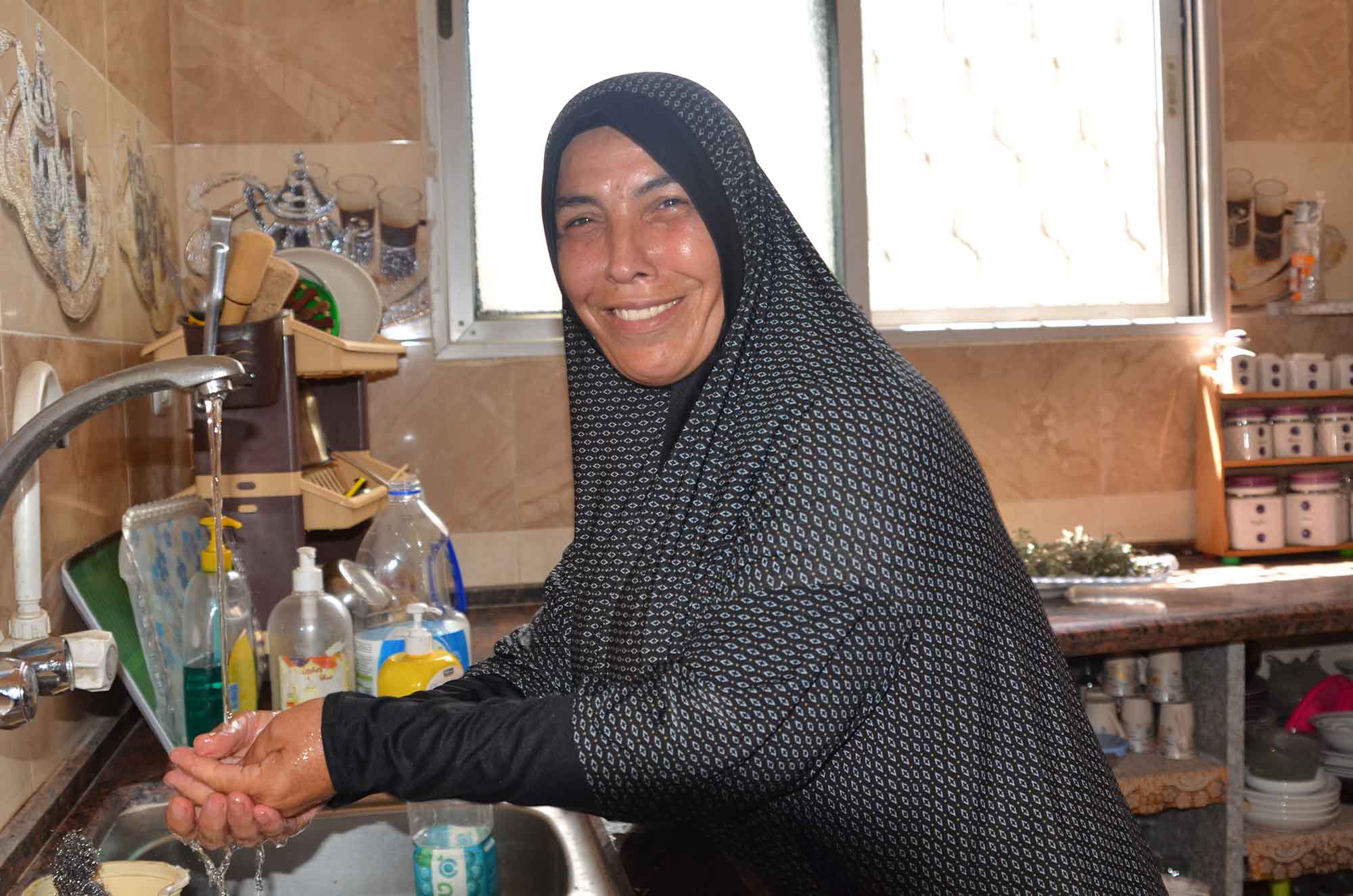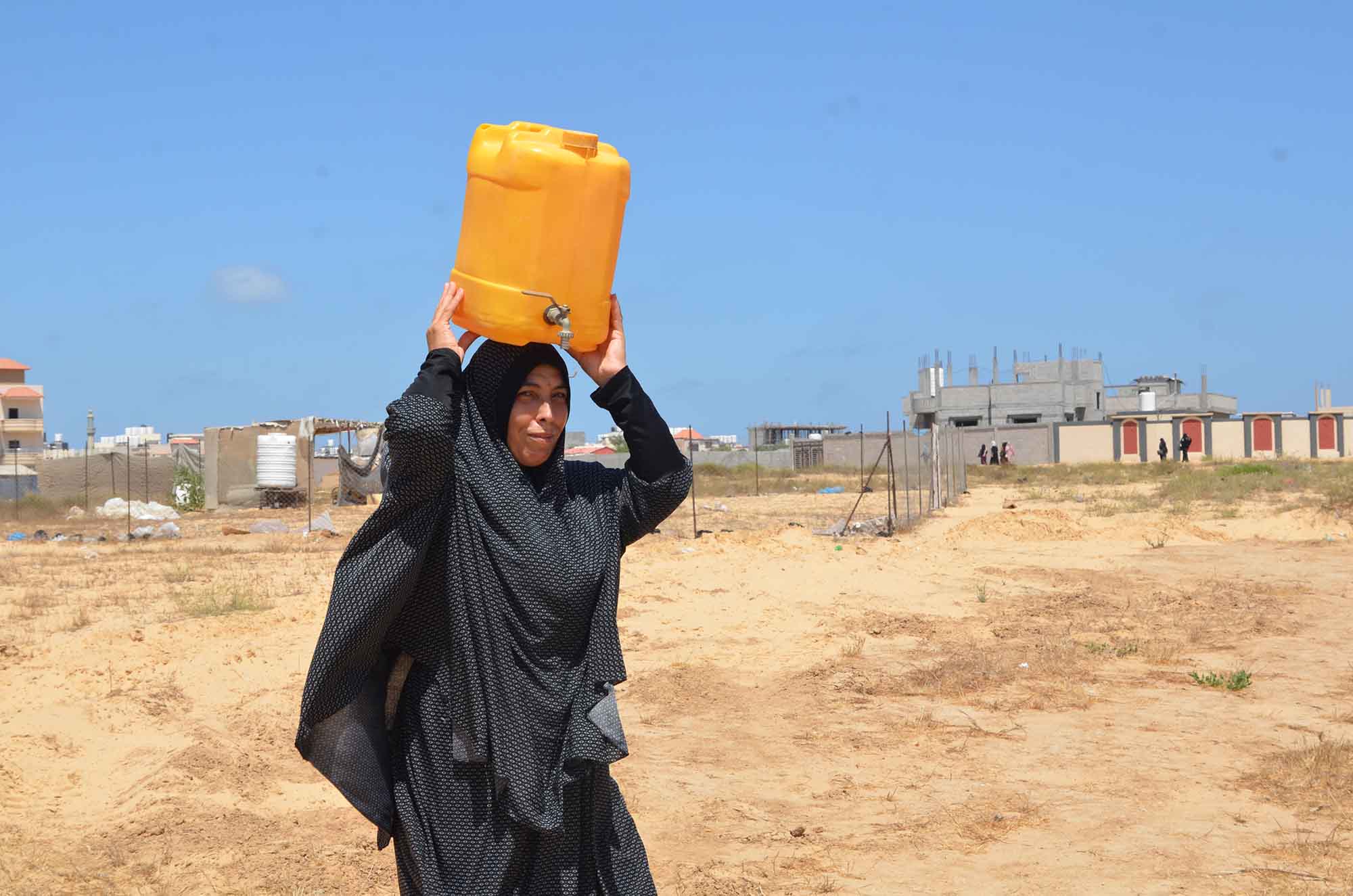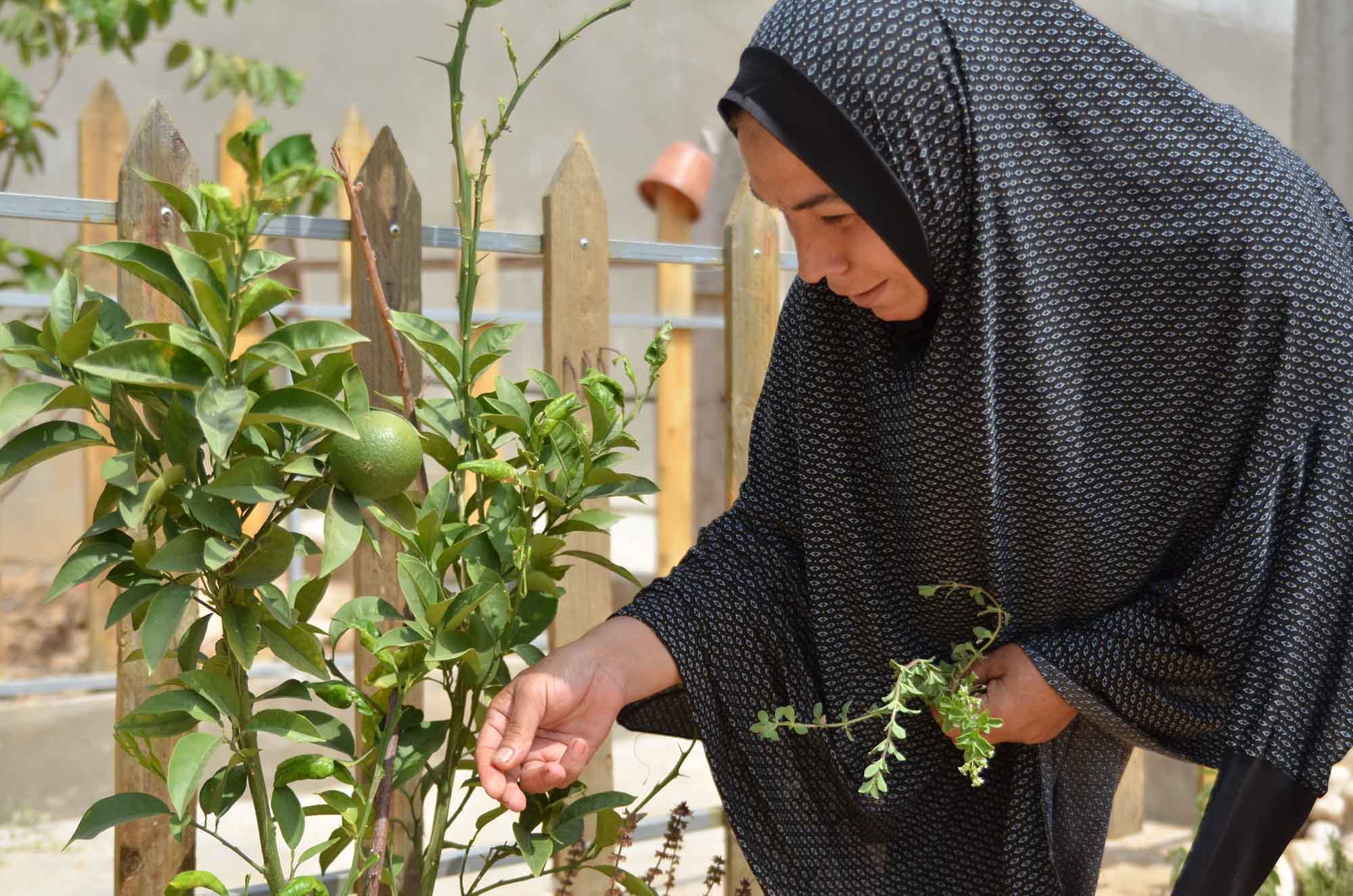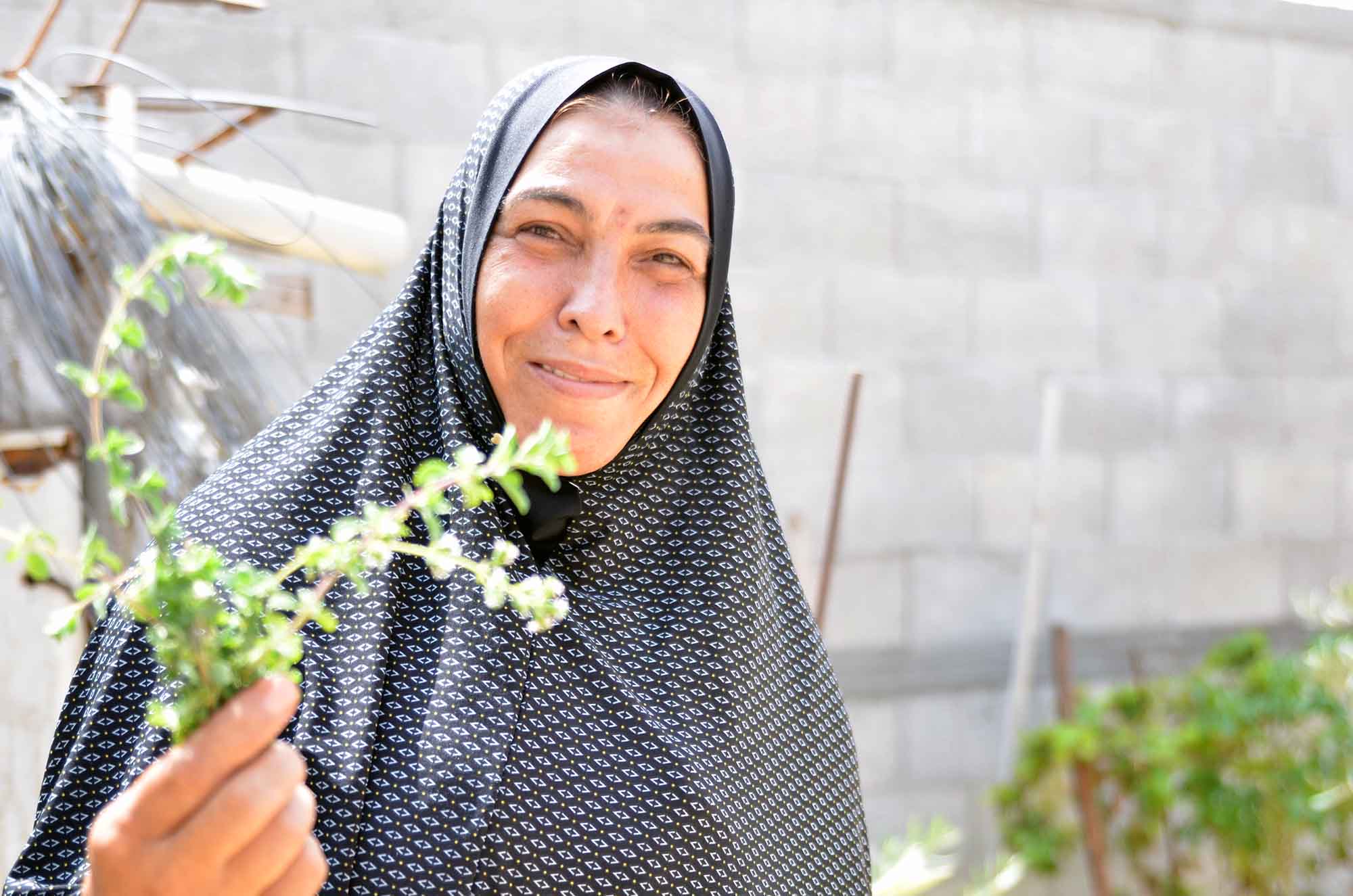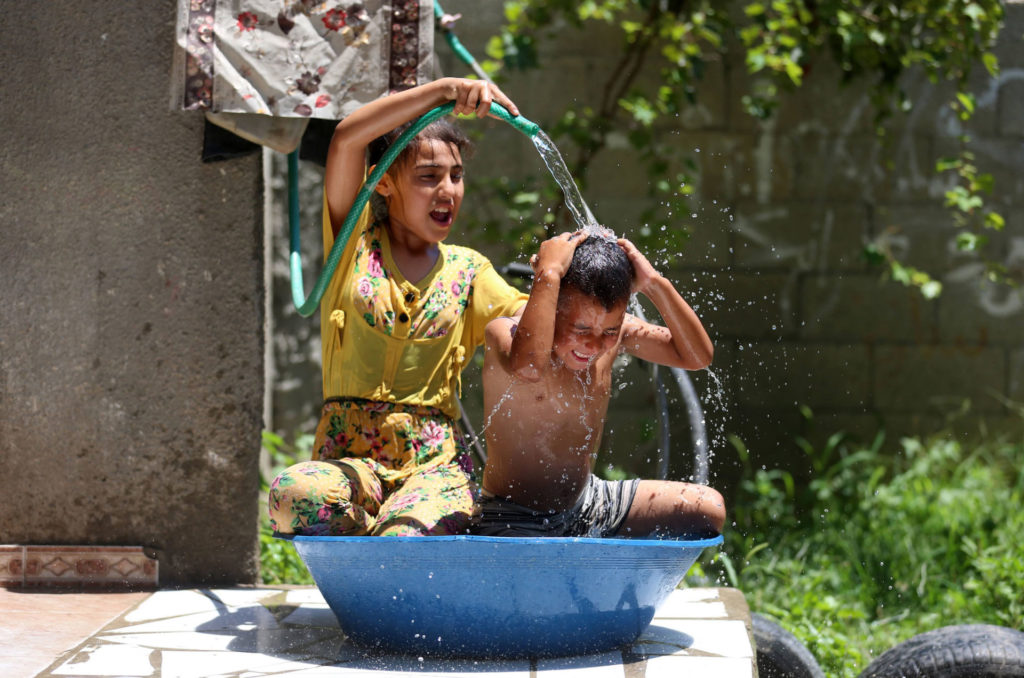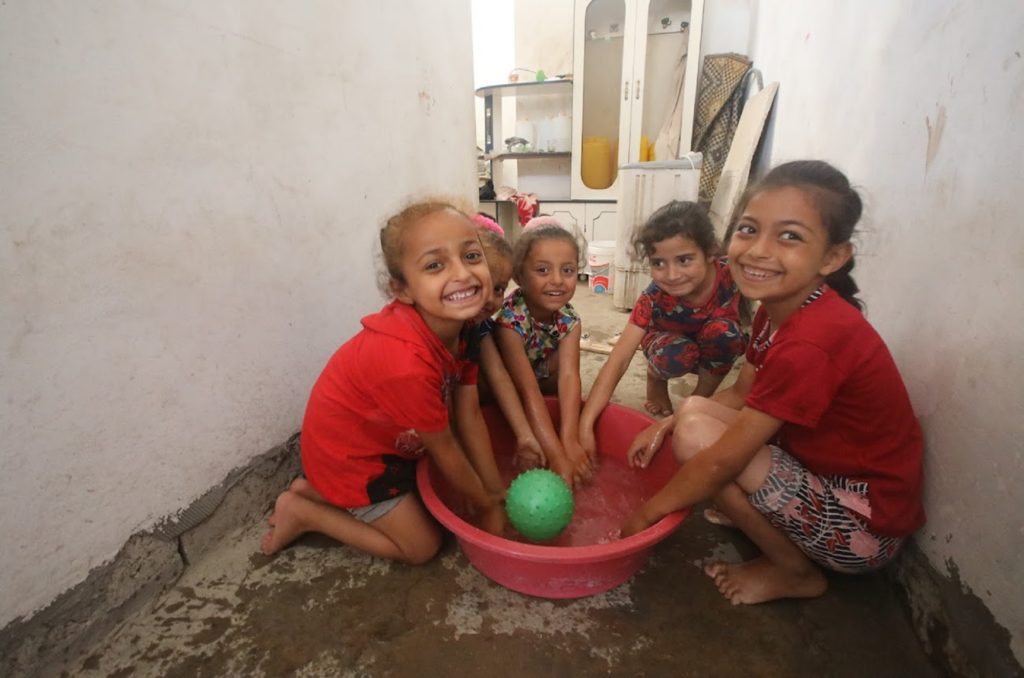Oct, 2022
Anera installs water pipelines to 35,700 homes in Rafah to ease water shortages and improve the quality of life there.
Rafah, Gaza resident Hanan Abdeen’s face lights up when she recalls the day she found out she was finally getting water directly to her house for the first time.
“I remember one hot morning in April when I heard the sound of a bulldozer digging its way through the streets just outside my house. I ran outside to see what the commotion was. A nice gentleman informed me they were installing a network in my area and I would soon have running water in my home on a permanent basis and at really affordable prices.”
“I stood there in total disbelief thinking there was no way this could be true. Today, my faucet runs and I can’t be more grateful.”
Anera has installed 1 million meters of water pipes to provide 35,700 residents of Rafah with an adequate flow of water directly to their homes to ease the water shortage problems in the area. The project was completed with support from the United States Agency for International Development (USAID) through the Palestinian Community Infrastructure Development (PCID) Program.
Summers in Gaza bring extreme heat and humidity. More than two million residents receive only a few hours of electricity a day. “We can live without power. We have learned to live without electricity,” Hanan says,
“But water is the most important part of life, because without it you can’t survive.”
Until recently, Hanan says she didn't feel like she was living in the 21st century. She was lucky if she had enough water to properly clean her home and flush the toilet. So Hanan came up with a desperate measure. “I had to build my own makeshift pit hole with bricks, behind my house, for those dreadful long waterless days,” Hanan said. “I was drowning in sorrow until the water came.”
When she had money, Hanan would purchase water weekly from the water tankers for 20-50 shekels ($6-$14). Other times, she had to walk nearly two kilometers to fill up her small yellow bucket from sources with questionable water quality.
Improved Water Access, Improved Quality of Life
Hanan likes to recall how life used to be to better appreciate what she has now. “Today, my faucet runs and I am thrilled every time I turn on the tap.” She describes the conditions she was living in before as "nothing short of a nightmare and a horrible way of living.”
The 60-year-old widow lives in an area cut off from neighbors and the city. Her siblings live far away. She has no children to help her. So running out of water was a challenge because she had nobody to turn to. “I will never forget the time I ran to the closest neighbor just to ask for water,” she recalls.
The newly installed water network may also yield a source of income for Hanan who now is thinking of ways to tending her new garden and sell the produce. Hanan considers her new garden a gift that has given her a new mission in life.
“After getting water, I started to work on my small garden. I grow tomatoes, grapefruit, and even parsley. At times, I walk to the main street of Rafah and sell my parsley or whatever crop I have handy,” she explains.
Hanan says her mornings are much brighter now. “I wake up every morning to take care of my garden and water my fast growing crops.” Hanan dreams of expanding her garden too.
“Showering daily, washing my clothes, cleaning my house, and now being able to water my own crops is just the best feeling in the world.” Hanan says, “I just wish my late husband were here to see how blessed and bright our home has become.”

